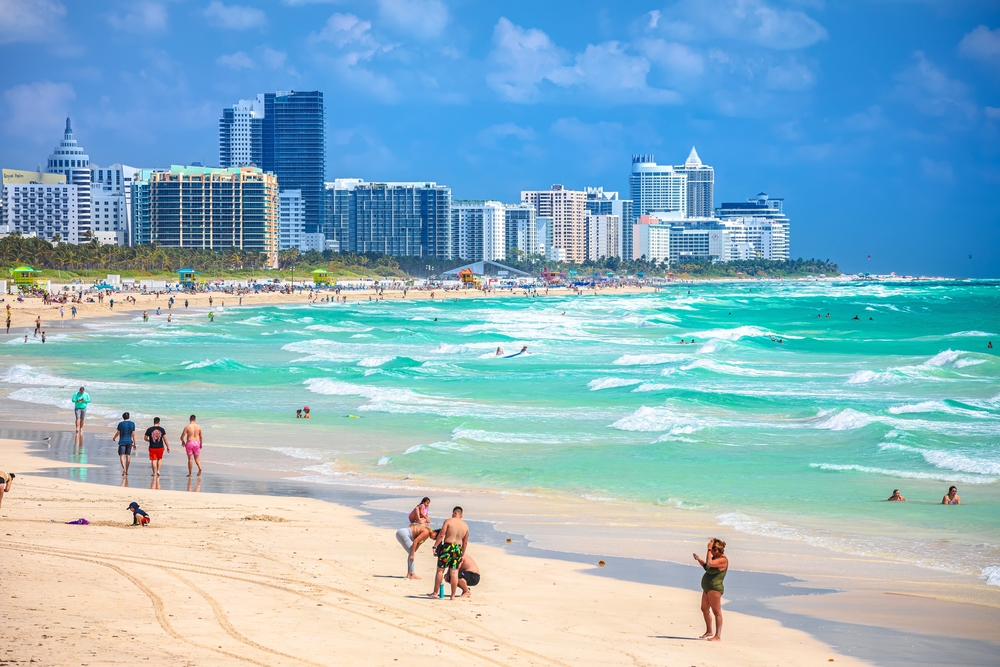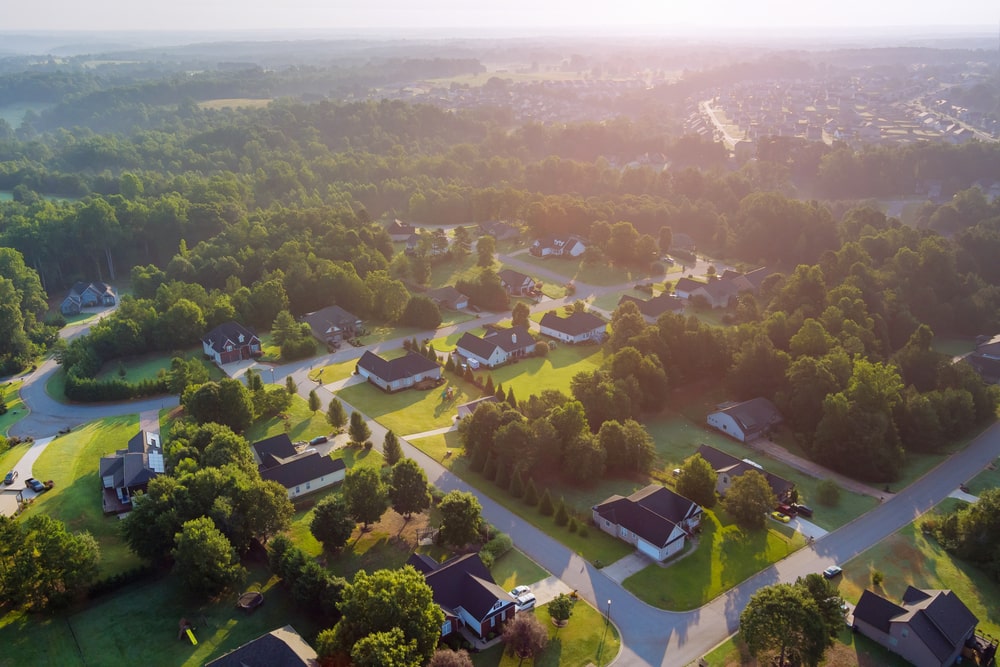Would you like to retire in Florida?
If you’re a baby boomer who wants to retire or have already left the workforce behind, you know that many people are thinking about moving to Florida. If you’re one of them, this article will answer all of your questions. The warmer weather, clear waters, and friendly people are only a few of the things that could spark joy in a retiree’s life.
Expectations can be different from reality, and the Sunshine State is no exception. Beyond beaches, Disney World, and the enormous retirement community known as The Villages, Florida is a little more complicated. Before packing up and moving south, you should take some time to think about it. We advise you to “try before you buy” by staying in the Sunshine State for a considerable amount of time to get to know the area before deciding to migrate.
So, do you want to retire in Florida? Then this is what you should know. Grab a drink and a snack, and let’s dive into the details!

1. You’ll need plenty of insurance
While home insurance is important regardless of where you live, the risk of hurricanes makes insurance more important and a lot more expensive in the Sunshine State. According to experts, companies advise people living in hurricane-prone areas to get homeowners insurance but also flood insurance and sometimes even windstorm coverage.
Unfortunately, a standard homeowners insurance policy doesn’t cover floods, but you can get your coverage from the National Flood Insurance Program. As specialists say, flood insurance costs an average of $890 per year from the NFIP. If you don’t want this, you can always check out private insurers for flood coverage.
If you want to retire in Florida, make sure you check out a home’s insurability before moving, so you avoid paying yearly premiums that exceed your budget. There are lots of platforms where you can check out different insurance plans, so look them up.
2. Housing supply is going up
Here’s another thing you should know if you want to retire in Florida: the housing supply is increasing. In the past, Florida had little inventory in this seller’s market, but lately, the state has been dealing with an inventory excess and a shortage of purchasers.
Many houses are available in the Sunshine State, and since not many people want to purchase anything, sellers are reducing prices in multiple areas. If you’re considering retiring in Florida and becoming a homeowner, now’s your chance. You can explore various housing options in cities such as Cape Coral, West Palm Beach, North Port-Sarasota, Tampa, Orlando, and Fort Lauderdale.
However, real estate agents noticed that many people prefer to move to North Carolina or Tennessee rather than spend the rest of their lives in Florida. As for the price of a home, the average home value in the Sunshine State is around $400,000, while the average home in the US is $361,000.
3. Watch out for creepy creatures
The wildlife of Florida is its own ecosystem, and it might do more to you than just make you itch. Believe it or not, these creatures could deplete your finances as well.
For example, Florida homeowners deal with termites regularly. The Sunshine State has three spots among the top ten American cities where experts treated the most termites between February 1st, 2022, and January 31st, 2023: Miami, Tampa, and Orlando.
A professional termite examination costs approximately $150 on average but can range from free to $350. The typical expense of treating termites is around $600.
And let’s not forget about rats. If you want to retire in Florida, you should know that you are more likely to find these annoying creatures everywhere you go or look: in the trees, on the beach, and even on your roof.
These are the same rats you know from other parts of the country, but they’re adapted to the climate and are known as roof or palm rats. You should constantly call rat control to keep them away from your property, and it will cost you around $300 a year.
As someone who has siblings in the Sunshine State, I have to warn you that you’ll find lots of “Beware of Alligators” signs throughout the state because there are roughly 5 million of them in the country and more than 1 million are in Florida.
Other animals you should be aware of if you want to retire in Florida are panthers and Burmese pythons. Even though there haven’t been many attacks reported, panthers tend to feed on livestock and pets, while pythons might show up in your vehicle, laundry room, and pantry, among other places.

4. Less taxes
You might save a ton of money on taxes if you relocate to the Sunshine State. Florida has no state income tax, making it one of our top ten tax-friendly states for retirees. This implies that state taxes on pensions, IRAs, 401(k)s, Social Security benefits, and other retirement income aren’t applicable. Furthermore, there’s no estate tax or inheritance tax, which is fantastic!
However, if you’re a snowbird with a second residence in a cooler state, establishing your domicile in Florida for tax purposes isn’t as simple as it sounds. You’ll need to prove you’re in Florida for at least 183 days each year. State tax auditors won’t just take your word for it.
Start by recording in a journal or log how many days you spend in each state, as financial experts recommend. Here’s what else you can do:
- remember to file a Declaration of Domicile with your local county court;
- apply for a library card;
- register to vote in Florida and fulfill your civic duty if you receive a jury summons;
- change your car registration and your driver’s license;
- open a bank account at a local bank in your city and keep all the receipts for ATM withdrawals;
- buy locally. This is also a smart move because credit card data can sometimes be examined by state tax auditors to find out where you spent the year;
- build ties with the medical professionals in your new area.
5. Too much sun
Okay, you might want to retire in Florida to enjoy the warm weather, but there is such a thing as too much sun. While wearing sunscreen daily can protect you from the warm rays of the sun, sometimes it’s not enough.
Prolonged exposure to UV rays can cause uneven skin coloring and premature wrinkling. You might have a wonderful tan all year, but too many sunburns could cause your skin’s texture to change. You might notice it’s leathery and tough, and if you like wearing makeup, it won’t apply as smoothly as before.
Other than that, too much sun can also cause more wrinkles, and gray, brown, yellow, or red spots in the skin called sunspots. And, of course, we all know about skin cancer. The more exposed you are to the sun, especially if you don’t wear SPF, the greater the risk of getting skin cancer.
If you want to retire in Florida, pay attention to this. Don’t forget to wear sunscreen daily and reapply it every few hours. According to a study, the Sunshine State was the second in the country for the highest rate of new melanoma cases.
6. The weather can be harsh
Sure, we all know that the weather is pretty gorgeous in the Sunshine State. It doesn’t have this incredible name for nothing, right? But don’t be fooled by the strong rays of the sun, because thunderstorms there can be pretty tough.
As meteorologists say, the Atlantic hurricane season lasts no less than 6 months, from June 1st to November 30th, and it peaks between mid-August and late October. Moreover, this lovely state has been a hurricane victim since 1850, so you can experience flooded streets, destroyed homes, snapped trees, and entire neighborhoods left without power.
Do you remember that we’ve previously talked about high insurance fees? Hurricanes are one of the reasons why the costs are so high here. You need to pay a lot to protect your property, especially when the weather is so unpredictable.

7. Touristic destination
If you want to retire in Florida, get ready to see a lot of tourists. While it’s fantastic that our country is visited by both Americans and foreigners, you don’t notice how tourists can slow you down unless you’re a resident.
According to statistics, in 2023, the Sunshine State was visited by over 140.6 million tourists—a 2.3% rise from 2022. Seeing people excited by national parks, wildfires, and clear waters in Florida is indeed lovely, but it also comes with a cost. Just think about how expensive dining and having drinks at a bar will be. And don’t get me started on how crowded the streets will be. If you have errands to run, make sure you have a lot of patience, because you’ll need it.
8. It’s a scammers’ paradise
As you can tell, this list is all about both pros and cons, because we want to give you a well-rounded guide. Speaking of good and bad things, if you want to retire in Florida, watch out for con artists. Unfortunately, this state is known for being a wonderful retirement destination, and since it’s full of seniors, scammers think of us as easy targets.
They don’t shy away from playing their games, waiting for a nice retiree to fall victim to their scams. One of the most popular frauds is the imposter one. They will call or text you, pretending they’re part of your family, and ask you for money. They will pretend they’re in big trouble and need the money ASAP, but you can’t tell anyone else in the family. They’re more likely to give you a bank account to send the money to or send someone to your home to collect it.
Pay attention to everything that seems suspicious; don’t give personal details about your life and your family; and contact the police. In 2017, Florida ranked #1 in the country for fraud, and there were roughly 1000 cases per 100,000 residents. You don’t want to be tricked and lose the money you’ve worked so hard for. Take care!
9. Lots of things to do
There’s usually one big misconception about the Sunshine State as a retirement destination: many people imagine Florida is one huge beach. But there’s so much more than that! You’ve probably heard about those gorgeous theme parks, lovely museums, great stores, top-notch restaurants, theaters, cafes, islands that can’t wait to be visited, and so many other things.
If you want to retire in Florida, make sure you explore the state, because it is unique. Each metro area is special and has its own vibe. Not to mention, the east and west coasts are very different from one another, and you have to visit them and understand what makes them so incredible. And if you’re a fan of rolling hills and countryside, you must check out North Florida.
Don’t just go to the tourist spots, like Miami or Orlando, because there’s so much more to see. I recommend Fort Myers Beach because there are lots of communities for retirees, lovely bars, and walkable places.
In case you prefer something smaller and more intimate, I couldn’t recommend Sarasota enough. It has lots of sandy beaches, stores, and restaurants, and is quieter and friendlier than many large cities. One of the main things that attracts seniors there is access to the Sarasota Memorial Health Care System, the biggest medical center in the state.
Some seniors want to learn as they grow older or prefer to hang out with youngsters, and if you’re one of them, you must check out Gainesville. This city is home to the University of Florida, but the sad thing is that it is 75 miles from any beach.
10. Great accessibility
Even though dealing with tourists can be challenging, one positive outcome is the improved accessibility for travel to and from Florida. From the Panhandle to the Keys, there are 19 commercial airports, 3 of which are the busiest hubs in the nation (Orlando, Miami, and Fort Lauderdale-Hollywood). That’s a comforting reality for seniors who want to travel often and/or who plan on having their children and grandchildren visit frequently.
If you crave a traditional and fun road trip, Interstate 95, which roars from Miami up the East Coast to the Canadian border, is a wonderful option that won’t disappoint you. As we’ve previously discussed, the Sunshine State isn’t all about beaches, so if you have the desire and the budget, traveling in your golden years is one of the most amazing things you could do.
11. It’s a swing state
Let’s continue with these things you need to know if you want to retire in Florida because we’re almost at the end of our list. With that being said, did you know that in the Sunshine State, your vote is crucial in presidential elections? That explains why residents see lots of political advertisements, door knocks, and possibly even an increase in political conversations with friends, neighbors, and coworkers.
…Would you like to live in a political state? We’re curious to know what your thoughts are, so leave a comment below, and let’s discuss!
12. Sinkholes are real
There are many pros and cons to retiring in Florida, but sinkholes are one of the worst risks. These naturally occurring geological features are common in the Sunshine State due to its carbonate rock foundation, primarily limestone, which is extremely porous. As water dissolves the limestone, it creates holes and fissures. When this happens, the solid ground above can collapse, forming a huge pit.
The counties with the most sinkholes are Pasco, Hernando, and Hillsborough, known as Sinkhole Alley. Unfortunately, we can’t predict where the next sinkhole will occur, so you need to be careful. Even though these huge holes can swallow cars and even homes, only two people lost their lives because of this, according to officials.
Would you like to retire in Florida? If yes, don’t forget to schedule a few days or weeks there to discover the vibe and the people and get a better idea of what your life could look like. Pack your bags and have fun (here is a fabulous suitcase)! If you find this article helpful and you’d like to check out something else from Golden Years Bliss, here’s a good post for you: Did You Know These 7 Foods Can Affect Your Body Odor?










Surprisingly, the word “humid” (or “humidity”) does not appear even once in this article.